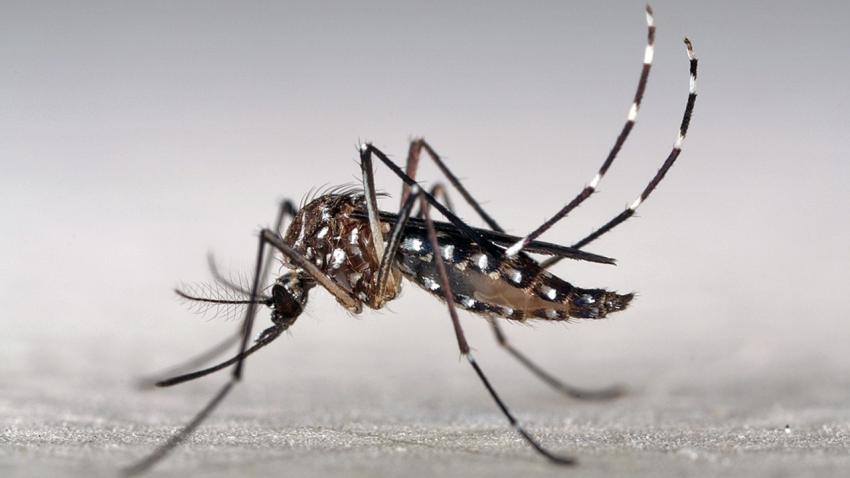U.S. President Barack Obama today announced that his administration plans to ask Congress for more than $1.8 billion in emergency funding to beef up preparations for and responses to the Zika virus.
More than half the money, which is expected to be part of the fiscal year 2017 budget request to be released Tuesday, would go to the Centers for Disease Control and Prevention (CDC). In addition to strengthening programs to control mosquitoes—which carry and spread the Zika virus—the new funds would aim to improve domestic and international surveillance of the once exotic pathogen and possible links to disease. Although Zika causes no harm in most people it infects, its possible role in clusters of microcephaly in babies and Guillain-Barré syndrome in adults led the World Health Organization on 1 February to declare that it is a “public health emergency of international concern.”
Zika virus has raced around Latin America and the Caribbean over the past year. Although there have been 50 laboratory-confirmed cases in the United States over the past 3 months, all have been in people who have traveled to affected countries. But the Aedes aegpytimosquito that carries the virus lives in parts of the United States, and health officials expect to see local transmission of Zika occur once warmer weather spurs an increase in mosquito populations. “We must be fully prepared to mitigate and quickly address local transmission within the continental U.S., particularly in the Southern United States,” a White House press release states.
The funding request includes $250 million to help Puerto Rico, a U.S. territory in the Caribbean that has active transmission of Zika virus. The money would be a 1-year increase to bolster health services for at-risk or infected pregnant women and babies born with microcephaly. Another $200 million would go to the U.S. National Institutes of Health (NIH) to support R&D for a vaccine and better diagnostics.
Michael Osterholm, head of the Center for Infectious Disease Research and Policy at the University of Minnesota, Twin Cities, says he thinks “the money can be used wisely across the Americas.” Mosquito control will have a spillover effect to other insect-borne diseases, he adds: dengue, chikungunya, and yellow fever all are increasing threats that are spread by the arthropods. But Osterholm notes that the request does not address cleaning up solid waste in developing countries, a key to reducing breeding spots for mosquitoes. “What’s fueled A. aegpyti is the overabundance of nondegradable biomaterials,” Osterholm says. “Cleaning it up doesn’t take research. It takes a will to do it.”
Congress will have the last word on how much money ultimately is spent on Zika. Lawmakers are not expected to approve a final 2017 spending plan until late this year.
*Update, 8 February, 3:26 p.m.: At a White House press conference today to discuss the budget request, Anthony Fauci, director of the National Institute of Allergy and Infectious Diseases in Bethesda, Maryland, noted that NIH currently spends about $100 million per year on research into dengue, yellow fever, and other closely related viruses to Zika, which are all flaviviruses. Some of those dollars will go toward Zika studies, but if Congress does not quickly approve the president’s request, Fauci said his institution would have to “move money away from other things” to do the “full gamut of what we need.” Some money now committed to the Ebola response also could be redirected to Zika.
In an interview with ScienceInsider, Fauci stressed that the amount of funding needed ultimately will depend on whether the links to serious disease prove real and if this turns into a major outbreak for the country, but they want to stay ahead of the potential problem. “We don’t want to get caught flatfooted,” he said.
Fauci and CDC’s Principal Deputy Director Anne Schuchat tried to allay concerns about other issues, including travel to affected regions during spring break, the 2016 Olympics games in Brazil, the discovery of Zika virus in saliva and urine, and the prospect of quarantining infected people.
“With this kind of large-scale spread of a virus that hasn’t been in that many people before we have to keep our eyes open,” Schucat said. “So far what we know is that the people that we’re most concerned about are pregnant women, and in the general public four out of five people seem to have no symptoms and one out of five has very, very mild illness and without us expecting to have lots of deaths.”
Given that this is a presidential election year, White House Press Secretary Josh Earnest fielded a question about whether the administration expected spending on Zika to become a politicized issue when the weather heats up and local transmission likely begins to occur in the United States. “I’m confident that just about everything will be subjected to some politics over the course of this year,” Earnest said. “But hopefully when it’s something as important as the health of pregnant women in the United States we can keep most of our attention focused where it should be, which is on the science and on the proven steps we know should be taken to keep people safe.”
